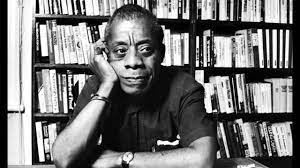No ecosystem can exist without diversity; human society is no exception. Racism denies diversity.
The, in my layperson’s opinion, well-deserved guilty verdict for Derek Chauvin, will, unfortunately, not be the end of official, whether law officers, judiciary, educational, et al., violence against people of color. In the case of law officers, the violence is particularly aimed at Black boys and men.
More recently we have had an outbreak of racist violence against anyone who might look slightly Asian, whether their ancestors were from Fiji, South Korea, China, or any number of other Asian countries. This in large part thanks to the former president and his strident, uninformed, and unformed rants.
Diversity is necessary for our species to ensure the healthy continuation of Homo sapiens. But diversity has nothing to do with race because race doesn’t exist as a scientific, biological construct. It is strictly socio-political, i.e., we made it up. I’ve written about this before so won’t go into that again here. (see my March 10th post on Race.).
What I would like to suggest now are some ways to think about the stereotypes and biases we have created around the “concept” of race.
James Baldwin, the brilliant essayist, novelist, and activist, wrote in an Autobiographical Note in about 1949, “In the context of the Negro problem neither whites nor blacks, for excellent reasons of their own, have the faintest desire to look back; but I think that the past is all that makes the present coherent, and further, that the past will remain horrible for exactly as long as we refuse to assess it honestly.” Later in 1962 in “The Fire Next Time,” “They [whites[ are, in effect, still trapped in a history which they do not understand; and until they understand it, they cannot be released from it. They have had to believe for many years, and for innumerable reasons, that black men are inferior to white men. Many of them indeed know better, but…people find it difficult to act on what they know.”
Early colonists also had to believe many myths, including that Native Americans, the so-called Indians, were savages and clearly needed to be saved or killed, depending on your point of view. Later when Italians, Irish, Chinese, and so many others were brought here to build railroads, towns, etc., whoever was already here had to develop similar attitudes.
We can’t consciously abuse people unless we perceive them to be different.
History, and not just that of the U.S., is often a web of myths, which persist even long after proven false. Consider, if you will, what myths you may have bought into, that have no basis in fact, particularly those that involve people who don’t look like you. Consider out history and uncovering some of our myths, including that this was meant to be a “white” country.

James Baldwin

It is so important that we not only acknowledge these myths, but then act to debunk them. Our attitudes must change! Reading James Baldwin is a great way to face the myths and the truths.
Thanks, Rosalie, for supporting the literary and truth-telling talents of the late James Baldwin. The more of both his novels and essays that I read, I realize what an exceptional writer and intellectual he was!
Recently, I participated in a conference regarding Black Feminism and Education. Dr. Cynthia Dillard made an excellent point. For white Americans, the historical narrative is rich with the culture of their heritage. But for black Americans, we are taught that their history begins with slavery. She encourages an active exploration of the rich heritage of African-Americans, both individually and in our history lessons.
Thanks for this, Viara. It’s so true, and so much of white American history is full of myths, which we rarely are taught are just that. Certainly this country is not alone in that, but part of that is denial about what slavery really was and African American heritage.